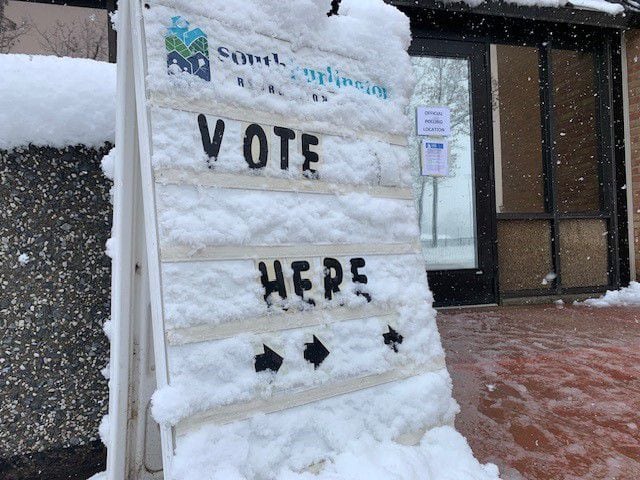SOUTH BURLINGTON, Vt. (WCAX) – Voters in South Burlington this week are weighing in on a scaled-down school budget. But the new $69.5 million spending plan would still raise property taxes by 14.5% and could be a tough sell. The city is among dozens of districts that rejected school budgets on Town Meeting Day and will require similar revotes. It comes as state lawmakers in Montpelier search for ways to make the education financing system easier to understand.
Turnout at the polls was relatively quiet in South Burlington Thursday due to the snowstorm, but city officials say about 1,500 people voted early out of 15,000 registered voters.
Even with a trimmed-down school budget, the owner of a $500,000 home in South Burlington would pay more than $7,000 in property taxes under the revised proposal. Voters we spoke with say they’re conflicted, balancing students’ needs with affordability.
“It’s too complicated. I try to follow it but I don’t understand it and I’m a former teacher. It’s difficult,” said Ken Perrotte of South Burlington.
“Your property taxes are going up, your utilities are going up, everything is going up. Even when you’re going to the grocery store, you’re seeing the increase in prices, you know?” said local resident Sai Sarepalli.
South Burlington is just one district giving another crack at their spending plan after an unprecedented one-third of those who voted last month rejected them. Voters in the Georgia Town School District voted down their budget for a second time this week.
The Legislature’s education and tax committees held a joint hearing Thursday and lawmakers said they are hearing Vermonters’ concerns of affordability. “Vermont has reached a tipping point regarding a lack of affordability of our education funding system in its current state,” said Rep. Kari Dolan, D-Waitsfield.
Since the Brigham decision in the ‘90s, funding equity between schools has been the priority. But in a funding formula where local spending decisions come out of a statewide fund, some say it’s incentivized districts to spend more. It comes as costs have also increased as schools have taken on more responsibilities including mental health, nutrition, clothing, and more.
The wave of failed school budgets has state lawmakers searching for ways to contain costs while maintaining educational equity. That includes renewed discussions about school consolidation, investing in community schools, and searching for ways to make school budget votes more transparent.
Lawmakers are also looking at ways to blunt property tax woes this year. The house is considering a tax on business software that they believe will raise about $20 million for the Education Fund. But with only a month to go in the session, lawmakers we spoke with say a major retooling of the education funding formula likely won’t happen this year.

